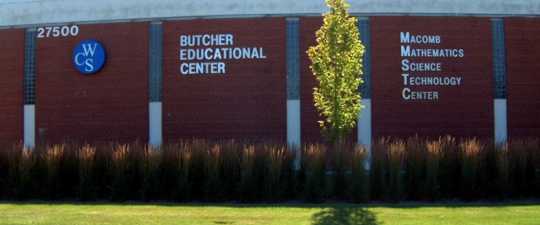MPSC Establishes Statewide Net Metering Program, Approves Revised Rules
The Michigan Public Service Commission Wednesday established a statewide net metering program, required by Public Act 295 of 2008, also known as the Clean, Renewable and Efficient Energy Act. The Commission also approved electric interconnection and net metering rules.
Net metering occurs when customers with renewable energy generators produce electricity in excess of their needs, providing power back to the serving utility and receiving a credit for power they supply to the system. It is anticipated that most net metering customers will be using wind or solar generation equipment.
“The new statewide net metering program means residential and business customers can add small renewable energy electric generation projects onsite and get credited for the energy they produce in excess of their needs -- at the full retail rate,” noted MPSC Chairman Orjiakor Isiogu. “As a result, my fellow Commissioners and I expect the number of net metering customers to skyrocket.”
The MPSC on March 3 held a public hearing to provide people with an opportunity to comment on the proposed rules that govern net metering an interconnection. Based on those comments, the MPSC made minor changes to clarify the meaning of the rules.
The approved rules:
* Classify interconnection projects into different categories to reflect the level of complexity of projects according to their size.
* Direct utilities to designate an initial point of contact for customer inquiries about interconnection and net metering, and alternative electric suppliers must designate a point of contact for inquiries about net metering; and direct applicants to designate a contact person who can respond to technical issues or questions from the utility.
* Add an alternative dispute resolution process to resolve conflicts that may arise.
* Provide for the appointment, if necessary, of one to three independent experts by the MPSC to review any technical, cost or timing issues, if a complaint is filed.
* Provide clear time limits for completion of reviews and studies, if necessary, that are based on the size and complexity of the project.
* Provide for re-application when an applicant for interconnection makes a material modification to an approved project.
* Require no additional insurance for the smallest projects (up to 150 kW) and do not require that the utility be named as an additional insured party. For larger systems, a minimum $1 million general liability policy would be obtained by the applicant.
* Provide for disconnection in certain circumstances
* Provide that the applicant would be responsible for the costs of securing any easements or rights-of-way that might be required for interconnection.
* Provide that the size of net metering generators be limited to meet the applicant’s electric needs
* Provide for the transfer of current net metering customers to the new net metering program within 30 days of the rules’ effective date
* Establish net metering equipment requirements and grandfather existing equipment that is already properly interconnected.
* Provide for the measurement of monthly net usage with the customer’s existing meter, if it is capable of measuring the flow of energy in both directions for net metering customers with generators that are 20 kW or less
* Establish billing and crediting procedures for net metering customers.
* Provide for the crediting at the full retail rate for true net metering customers.
* Provides for modified net metering for renewable generators up to 150 kW and methane digesters up to 550 kW.
* Provide for penalties for violations of rules.
The approved revised rules now go to the Legislative Service Bureau and the State Office of Administrative Hearings and Rules for certification as soon as possible. The Commission is seeking a waiver of the 15 days required to expire before certification by the Joint Commission on Administrative Rules. That waiver would allow the rules to take effect no later than April 4.
Once final approval is granted for the rules, Michigan electric utilities, including investor-owned, regulated cooperatives, and alternative electric suppliers, will offer their customers a net metering program.

No comments:
Post a Comment